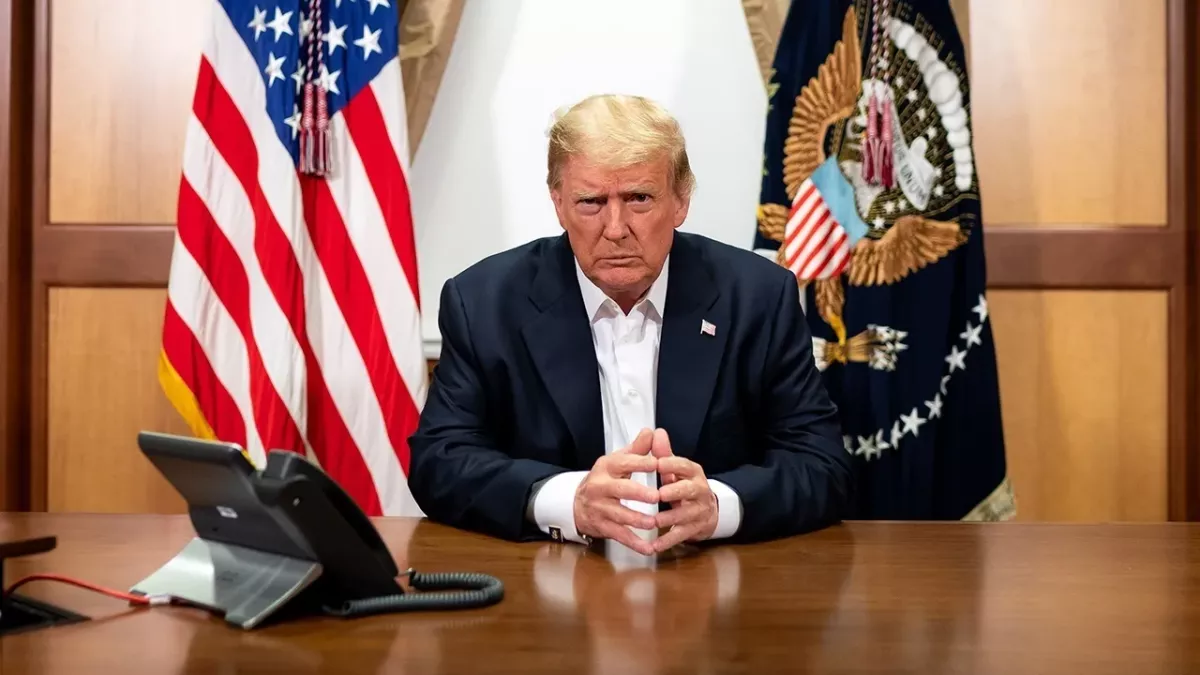Israel’s dilemma: Preserve the coalition or end the war? Expert opinions on Caliber.Az
The Palestinian group Hamas has announced its readiness to negotiate a ceasefire proposal for the Gaza Strip.
“The movement is ready to engage immediately and seriously in a cycle of negotiations on the mechanism to put in place the terms of a draft truce proposal received from mediators,” read a statement by Hamas published on June 4.
The allied terrorist group Islamic Jihad also expressed support for ceasefire talks, while demanding guarantees that Israel would not resume military operations after the release of the remaining hostages in Gaza.

U.S. President Donald Trump briefly commented on Hamas's statement, saying: “That’s good.” He added that a “deal on Gaza” could be reached as early as next week, expressing optimism despite the volatile situation.
According to AFP, citing sources within the Palestinian delegation, international mediators currently have a new 60-day ceasefire proposal on the table.
According to the proposal, Hamas is to release half of the remaining living Israeli hostages — 22 individuals currently held in the Gaza Strip. In return, Israel is expected to release several Palestinian prisoners.
Of the 251 hostages abducted by Hamas and affiliated groups during the large-scale terrorist attack on Israel on October 7, 2023, 49 are still being held captive. The Israeli army has confirmed that 27 of them have died.
According to reports, the bodies and surviving hostages would be transferred in stages, while Israel, in turn, would agree to allow the delivery of various supplies into Gaza. In effect, this would enable Hamas to re-establish its supply channels — including those that go beyond purely humanitarian aid. This raises a critical question: who benefits from such an arrangement, and why? Is Israel truly interested in this outcome? And what is the public sentiment in Israeli society regarding the current developments?
Foreign analysts shared their assessments of the situation with Caliber.Az.

Israeli political analyst, Professor Zeev Khanin from Bar-Ilan University, believes that much depends on the agreements between Donald Trump and Benjamin Netanyahu.
“It seems that Netanyahu is ready to accept Trump’s demands, who, in turn, is interested in a swift end to the war in Gaza. However, this is vehemently opposed by Bezalel Smotrich and Itamar Ben-Gvir — leaders of the far-right parties within Netanyahu’s coalition. Without their support, he simply does not have a government. The question is whose conditions he will accept — those of his coalition partners or Trump’s.
If he chooses the latter, the proposed phased deal essentially represents the implementation of the Witkoff plan, adopted several months ago but never completed. Military operations were resumed, and both sides accuse each other of breaking the previous agreement. If Netanyahu decides to follow Trump’s line and return to the previously discussed scenario, it may mean he is heading towards early elections — against the backdrop of a military victory over Iran, the return of hostages, and the defeat of significant parts of Hamas’s and Hezbollah’s military infrastructure.
In that case, he will likely ignore the demands of coalition partners insisting on continuing the war until Hamas is completely destroyed, even at the cost of the remaining hostages’ lives.
Clearly, the proposed 60-day ceasefire period will be extremely tense. The phased format of the deal elicits mixed reactions in Israel. Hostage families, opposition representatives, and even part of the ruling coalition insist on a one-time exchange of all detainees. Further actions will depend on strategic priorities: some consider ending the war possible, others suggest giving Hamas a chance to lay down arms and leave Gaza. Should hostilities resume, Israel has the resources for targeted elimination of threats — as demonstrated by the operation against Iran.
If Netanyahu does not seek immediate elections, he will most likely concede to Smotrich and Ben-Gvir, accepting Trump’s ideas but implementing them selectively depending on how the situation develops,” the professor explained.
He also emphasised the importance of the question of who will deliver humanitarian aid to Gaza.
“This is essentially what the White House and State Department statements refer to when they mention ‘cosmetic changes’ to the previous agreement. Hamas insists not only on a 60-day ceasefire but also on the cessation of hostilities afterward, as well as on maintaining its presence in Gaza.
To retain control over the territory and its relevance, Hamas needs to continue managing the distribution of international aid. This is their main source of income, enabling them to keep the local population under control and continue recruiting militants.
Although their military wing has suffered heavy losses, with resources and a network of surviving tunnels, Hamas is capable of continuing guerrilla-style terrorism.
Israel, it seems to me, tends to expand the role of private organisations such as the Gaza Aid Fund, which operates outside of UN structures. The latter have effectively long since become part of Hamas’s civilian infrastructure. If aid is channelled through new routes, it could deprive the group of vital financial, administrative, and even military resources.
We will see how the situation develops. Likely, a combined scenario will be implemented, but, as you rightly noted, the situation is changing rapidly, and it is too early to draw final conclusions,” Khanin concluded.

Deputy Director of the Kyiv Centre for Middle Eastern Studies Serhii Danilov also emphasised that Hamas retains a certain potential for recovery.
“This will certainly not be the same Hamas that existed before October 7, 2023. But under favourable external conditions, it will be able to maintain control over the population of the Gaza Strip.
The deal has not yet been finalised, but it looks quite realistic. Negotiations in Qatar are ongoing. Israel and the United States need free hands—in case there is a need to resume strikes against Iran.
No one believes that the campaign against Iran is fully over. Therefore, it is extremely important to minimise external distractions that could give Tehran the opportunity to exploit Islamic solidarity and slogans defending the Palestinians.
There are also domestic political considerations. Prolonging the conflict benefits Netanyahu: the release of hostages reduces pressure on him from families and activists and allows him to postpone elections,” Danilov concluded.








